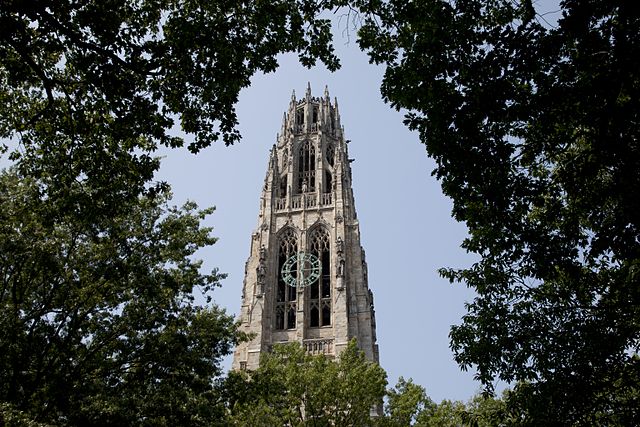The recent revelations of a nationwide college admissions and testing bribery scheme have met with a variety of reactions. There have been conversations about fairness and privilege in admissions practices. There have been expressions of lack of surprise, cynicism, or “that’s just how the world works.” And there are already the beginnings of a class-action lawsuit by students who claim their college degrees have been devalued by the rigged admissions system.
There are a lot of reasons to be pessimistic about higher education in America today. But are all these problems and turmoil merely the birth pangs of a new age? A few years ago in a short essay, “The Future of Higher Education” in his book The System Has a Soul, Hunter Baker argued that higher education was ripe for massive change and “directly in the path of creative destruction.” Baker saw the revolution in technology and content distribution as a main driver of change in the education market. But he was not talking about the ephemeral online colleges whose ads clutter your Google search results. These institutions, he said, are the kinds of pure intermediaries that will be most susceptible to market changes. Rather, Baker looked further ahead to the “disintermediation” of the whole education market. Perhaps in the future professors will be able to provide their services directly to students, who will in turn be able to put together a “patchwork transcript” of courses they have taken from top professors around the world. Baker predicts that a new age of educational choice will chip away at the current system.
The recent bribery scandal would seem to bolster the notion that the system is ripe for creative destruction and for the appearance of education entrepreneurs who can innovate and provide better educational goods at lower costs and lower prices. Yet it’s hard to imagine that elite universities would ever fail or be supplanted by something new. Baker himself argued that traditional institutions would survive, even if in smaller numbers. After all, they have built up centuries worth of economic and social capital—and government funding. They also have the costly specialized equipment and labs necessary for certain kinds of research. Furthermore, it’s hard to imagine a world in which prospective students (and their parents) would not desire the prestige of a degree granted by an elite school.
But strange things happen. For instance, Sears was an untouchable company—until it wasn’t. There was a time when it was unthinkable that the great American retailer would go bankrupt. Is it so unreasonable to think that something like this couldn’t happen to the supposedly immovable institutions of higher education? The fact that colleges and universities in America are so dependent on government funding complicates the picture, to be sure. There’s also an intricate system of accreditation that can function as a barrier to entry for new initiatives. Yet with enough scandals, complaints about rigged admissions practices, lifelong student debt, and diminishing returns on private and public educational funding, the scales may tip toward a new educational reality—one cooked up not in an elite university’s science lab, but in the mind of an education entrepreneur.
Image source: Wikimedia
